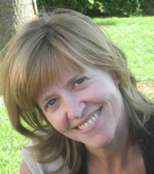 Eleanor Beardsley, whose South Carolina drawl is often heard emanating from Paris on NPR, agreed to take on her first climate policy symposium for us. She’s covered presidential elections, civil riots and the Tour de France. But climate policy wonks–whoa. Now that’s scary. From her notebook:
Eleanor Beardsley, whose South Carolina drawl is often heard emanating from Paris on NPR, agreed to take on her first climate policy symposium for us. She’s covered presidential elections, civil riots and the Tour de France. But climate policy wonks–whoa. Now that’s scary. From her notebook:
When I walked into the rather run-down conference room at Paris’ Universite Dauphine at the edge of the city, about 20 people were sitting around a huge circular table discussing climate issues. I have to say that I almost gave up the idea of doing a report at first, because I couldn’t get my head around what they were talking about. They were discussing the minute points of such things as paying for carbon emission reduction schemes, and the fairness of the CMD, or clean development mechanism! It seemed like a lot of blah, blah techno-speak. I jotted down several beyond-me phrases in my notebook, like “sectoral baselines without additionality.”
But I decided to stick it out. I had schlepped out there early in the morning, making two changes on the Paris metro. I might as well stay a while. That’s often the hardest part about being a reporter. You’re not really an expert at anything, and sometimes you have to find a way to quickly understand a complex story. But you just have to keep focused on what you think your general audience would want to hear about. They always tell you, “pretend as if you’re explaining it to your grandmother.”
In the end, all of the officials — both French and Californian — were more than happy to explain the main issues to me and what the stakes were.
I got the feeling these climate experts from the US and Europe have been working together and learning from each other for years, despite America’s seeming non-interest in the topic under the second Bush administration. Everyone seemed to know each other and be familiar with each other’s work. Someone described the advances that had been made over the years as “leap-frog progress.”
Now here was a concept I could grasp. You can see an example with the cap-and-trade policy on emissions the Obama administration wants to put in place. Apparently they are studying the already-existent European scheme to limit carbon emissions. But that European system, in turn, is based on the US’s successful reduction of sulfur dioxide, or acid rain, in the 1990s.
So even though everyone said global warming was already well under way, I came away from the conference with a comforting sense that at least there are some very smart people working passionately on the issue. I think they will find a way for the world to work together on this, rich and poor nations alike. There was also a lot of talk about fairness; making sure the richer, industrialized nations helped the developing countries get their act together.
They might even achieve those sectoral baselines without additionality…whatever that is.
2 thoughts on “Letter from Paris: Confessions of a Generalist”
Comments are closed.

Dear Eleanor,
I just wanted to introduce myself and let you know that we love hearing you on NPR every morning. We have adopted a son who is now 4 1/2 yrs old and he likes hearing his last name mentioned on the radio. Also, we are obsessed with Paris, have been there twice, hope to live there someday, and love the idea of another Beardsley reporting from there.
Keep up the good work!
Ross Beardsley
Ojai, CA
I’m sure Eleanor appreciates the kind words and would reply if she hadn’t already moved on to covering the next mind-boggling event; the G-20 Summit.